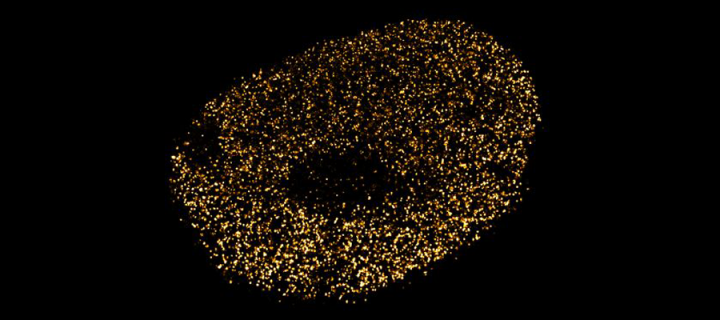First successful research grant application with an XDF Programme Fellow as the Lead Applicant
Our XDF Programme Fellow, Dr Mattia Marenda, awarded SULSA Technology Seed Funding: September 2019

The Cross-Disciplinary Fellowships [XDF] Programme at the University of Edinburgh (UoE) partners the MRC Institute of Genetics & Molecular Medicine (IGMM) with the School of Informatics (SoI) to maximise new cross-disciplinary opportunities in scientific discovery at the Life Sciences/ Computational interface, and their translational and innovation impact. It is led by a panel of directors including Professors Chris Ponting (MRC Human Genetics Unit/IGMM), Margaret Frame (Cancer Research UK Edinburgh Centre/IGMM), Tim Aitman (Centre for Genomic and Experimental Medicine/IGMM), Guido Sanguinetti and Jane Hillston (both from SoI), who are supported by Dr Arkadiusz Welman (Cancer Research UK Edinburgh Centre/IGMM) acting as scientific administrator. The Programme has been designed to recruit analytically minded people with strong computational skills to help solve some of the most challenging problems of contemporary biomedical research. The first recruits joined the XDF Programme in 2018 and it is most satisfying to observe their integration with the scientific community in Edinburgh as well as multiple productive collaborations resulting from Fellows’ interactions with colleagues in IGMM and across the University.
Ability to secure research funding represents one of the essential skills for successful scientists in today’s highly competitive research environment and the XDF Programme places strong emphasis on providing its Fellows with education and training opportunities in this area with the overarching aim of facilitating their transition to independence.
Summer 2019 was notable in this respect as it marked the first successful outcome of a grant application led by an XDF Programme Fellow - Dr Mattia Marenda. In May 2019 – less than a year from the beginning of the XDF Programme - Mattia and his colleagues from IGMM (Prof Nick Gilbert, Dr Dimitrios Papadopoulos), the University of Edinburgh’s School of Physics and Astronomy (Dr Davide Michieletto) and the Department of Physics of the Strathclyde University (Dr Sebastian van de Linde) submitted an application titled “Investigating the Bio-Physical Properties of SAF-A Assembly via Live-Cell Super-Resolution Microscopy, Machine Learning and Molecular Dynamics Simulations” for consideration by the SULSA Technology Seed Funding scheme. The application had been deemed highly innovative and funds were awarded to enable its implementation.
Understanding the three-dimensional organisation of the genome in eukaryotic cells represents one of the greatest challenges in Life Sciences and the cross-disciplinary team assembled will use a broad spectrum cutting-edge technologies to characterise and understand the biophysical principles with which SAF-A, a protein with structural and functional roles in chromatin organisation, organises the genome.

